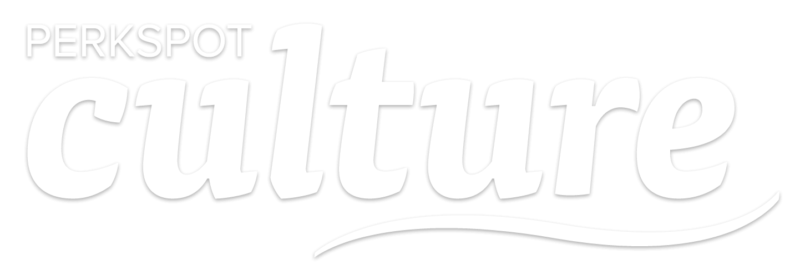Q&A with a Millennial Manager
There is a lot of information out there about millennials. From hopes and dreams to workplace perks, everyone is trying to figure out what makes them tick. But are we analyzing this group accurately? Generally, we imagine an older manager surrounded by an office of disgruntled young professionals. The fictitious manager often struggles with decisions like signing off on work-from-home policies and catering pizza parties for the office.
But is this reality?
As millennials become the largest population in the workplace, they are also filling a significant amount of managerial roles. This change brings a new dynamic to the workplace: The Millennial Manager.

To truly dive into this topic, we interviewed Michael DeRose, Staffing and Compensation Manager at the Michigan Department of Transportation. Throughout his decade of experience, Michael has insight not only as a Millennial Manager but an HR expert as well.
We asked him to share his thoughts on life as a Millennial Manager in a world of baby boomers.
Here’s what he had to say:
Tell me a little bit about yourself!
Currently, I am the Staffing & Compensation Manager for the Michigan Department of Transportation. I worked in state government for just over 10 years after obtaining a Bachelor’s Degree in Interdisciplinary Studies from Michigan State University and a Master’s Degree in Public Administration from Western Michigan University.
When did you reach management level? Was it challenging to “prove” yourself as a millennial?
I became a manager about 2 ½ years ago, after working in various HR roles for the State of Michigan for about 8 years. Thankfully, I am lucky to be surrounded by incredible direct reports and colleagues within my office but I certainly felt, and continue to feel, a pressure to prove myself. I am the youngest member of just about any meeting of organizational leaders. Whether feeling the need to prove myself is perception or reality is tough to discern, but I certainly feel like I have more to prove than colleagues that are 10, 20, or 30 years my senior.
What frustrates you about fellow millennials?
Feelings of entitlement are frustrating to me. This is not exclusive to millennials but I often speak with millennials that are frustrated about not getting a job, not getting a raise, etc. Millennials are an instant gratification generation. We can click a few buttons on our phone and have a new television delivered in 2 days, we bank from home and on the go, find answers in the blink of an eye, and connect with complete strangers in a matter of seconds online. I think some Millennials struggle when things aren’t granted to them immediately. That is probably my biggest frustration, especially working in a very large organization.
How do you measure performance as a manager?
For me, measurement is two-fold. I rely heavily on ongoing feedback from my staff and our customers. I find this to be important and I think it helps to have a general understanding of how things are going. Additionally, I try to utilize metrics as much as possible. I want to have data to back up the feedback that I receive. For example, I trust when my staff tells me it has been a busy year. However, I run a report of all application activity for the department at the end of each year. Not only is the data useful for determining inefficiencies and process improvements, it provides a great starting point for more discussion with staff.
What are some strengths you feel you bring to the table as a Millennial in management?
I think being a millennial allows me to see possibilities for significant, and rapid, growth. Millennials have come of age in an era where the Internet transformed the world. I think this backdrop allows me to feel that significant and rapid change is achievable. Additionally, I think I have strengths in the ability to understand and utilize technology to solve problems and create efficiencies. I’m no technology expert. However, I have a good enough understanding to know what may or may not be possible if the technology experts are brought in.
What is one common misconception you think millennial managers get?
One misconception that I think millennial managers get is that we aren’t solely focused on technology “because we are Millennials.” I think Millennials, at least I know this is the case for me, are just as uncomfortable with an archaic paper process as baby boomers are with newer technologies. In other words, we’re not just trying to use technology to “try something new”. We just feel more comfortable with the efficiency and convenience that technology provides.
What is one thing you wish Baby Boomers (coworkers or superiors) knew about you?
I hope my coworkers and superiors know that I value loyalty. The idea of a 30-year career with a pension and a gold watch ceremony upon retirement is appealing to me. That is simply not the work world I entered into. Millennials may want different things (I.e. Flexibility, career changes, etc.) but we are also presented with significantly different options than our predecessors. The removal of the pension (in most cases) is huge.
What are the weaknesses of being a millennial manager?
I think my greatest weakness related to being a millennial is understanding co-workers from other generations. It can be difficult to explain how a computer document is more efficient than paper documents. For example, when the individuals I’m explaining it to may have a strong comfort level with a paper process. I think it’s important to try to understand everyone’s view and communicate accordingly.
What trends do you see emerging in millennial management?
I think the biggest trend is that Millennials now make up the largest group in the country! Before we know it, millennials will make up a large majority of the workforce. Many of the generational differences will be between millennials and Generation Z, instead of with Generation X or baby boomers. It will be interesting to see how typical millennial traits change as millennials settle down, start families, and more closely align with previous generations, albeit at a later age.
Want more insights like these? Fill out the form to the right to subscribe!




